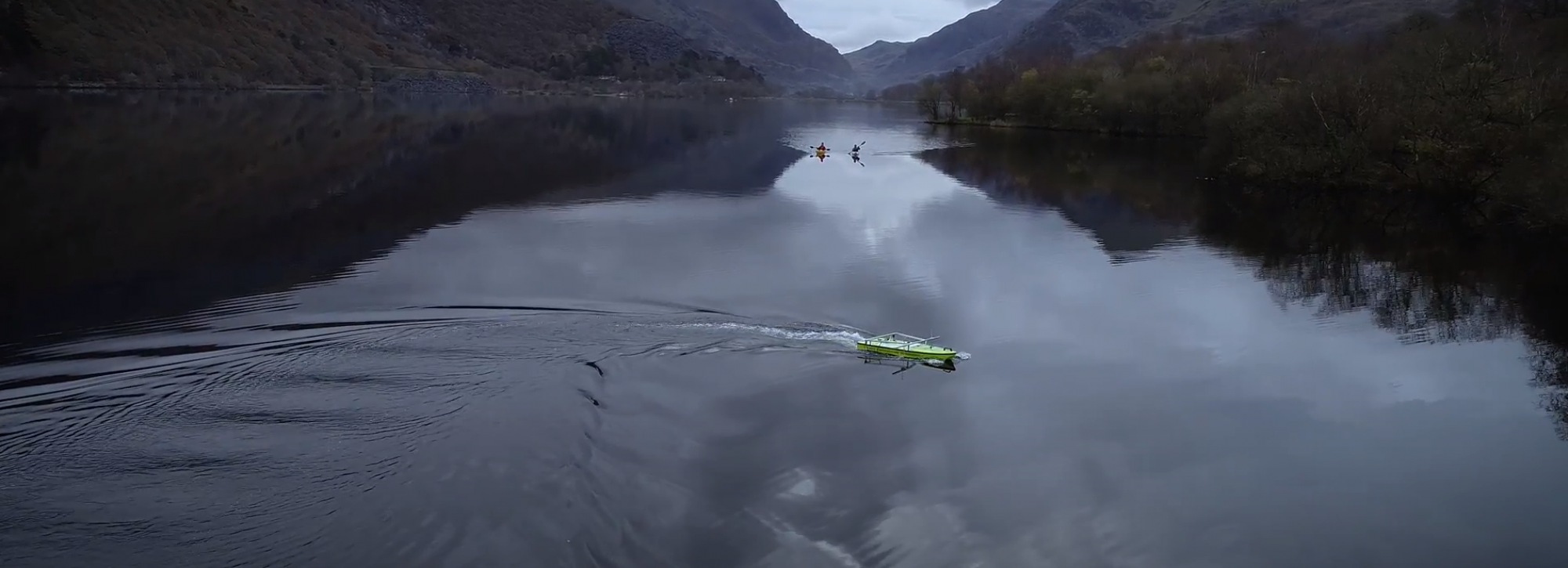
Fish tracking research collaboration checks out sustainable developments
Tracking fish movement is critical to understanding the ecological impact of offshore wind and marine developments. Zac Nash, PhD student at Bangor University, explains how he is using our survey vessel, the ARCboat, to autonomously track fish to understand their movement patterns.
Sustainable developments are about moving forward, not backwards, and therefore must not have a negative effect on the wildlife in that habitat. As the number of offshore tidal and wind developments increase to meet the demand for sustainable energy, it is important to understand the potential ecological impact on an area's wildlife. Tracking fish movement, and understanding fish migration patterns, is critical to assess any impact of new offshore developments.
However, tracking fish for long periods can be challenging. Autonomy is therefore emerging as an area of research for the marine sector – and deploying an uncrewed craft to do the work allows for longer and possibly more detailed tracking as well as being more economically viable. As visual tracking is difficult in marine environments, we are using an acoustic sensor array to help localise and track tagged targets. To allow us to fill the gaps in our knowledge about marine life, the data we are acquiring must be processed into a format suitable for further research.
My research goals are to provide an acoustic tracking system for autonomous vehicles, to develop a system that converts uncrewed surface vessels, such as the ARCboat, into fully autonomous vehicles, and to accurately track marine life.
Remote-controlled ARCboat
The ARCboat, to us, provides a platform on which to build an autonomous robot. Instead of developing a vehicle from scratch, which would take a huge amount of time, money and expertise, HR Wallingford and the ARCboat provide a fantastic opportunity to convert an already cutting-edge, economically competitive product. We have developed an array of acoustic sensors which are housed by the ARCboat, and an autonomy package that allows the boat to be pre-programmed to operate independently.
My favourite thing about the ARCboat is its durability and ease of use as a platform. We have experience working with other vehicles in the past which were extremely difficult to work with, as they kept breaking due to their electronics. So for me, the ARCboat platform is a breath of fresh air as it allows me to conduct my research, rather than constantly repairing issues.

Partnerships allowing academics to make a real difference
I am extremely lucky and grateful to be working with HR Wallingford and KESS II to develop these technologies. Supported by the Welsh European Funding Office (WEFO), KESS II is a fantastic operation providing a platform for students like myself, to partner with an industry partner, which in my case is HR Wallingford. This allows young academics to do work that can make a real difference.
HR Wallingford is a really exciting partner, as it works all over the world on fascinating projects. Despite all this activity, my supervisors Mike Case, HR Wallingford Business Development Manager and Peter Watchorn, HR Wallingford Senior Surveyor, still always have the time to support me.
Peter and his team’s work on the ARCboat is a fantastic innovation in the sector. A lot of their development time is directed towards improving their system and utilising the vehicle for its targeted uses. It is difficult to slow down that development in order to explore more research areas to which the platform could be applied. I think that is where I come in; academic partnerships allow research that a company is interested in to be completed, without sacrificing development time elsewhere. I benefit as I have access to both the knowledge of industry experts, and the facilities that HR Wallingford have developed.
ARCboat pushes research boundaries
Marine robotics is a huge area of industrial and academic interest. Next for my research is to conduct field trials on the acoustic processing work, to see how well it can localise acoustically tracked targets. HR Wallingford has a fantastic product with the ARCboat, and I hope we can push the boundaries of research further in the future.
Find out more about Zac Nash's research
Read Zac Nash's recent publication: Tracking the fine scale movements of fish using autonomous maritime robotics: A systematic state of the art review
Want to know more?
